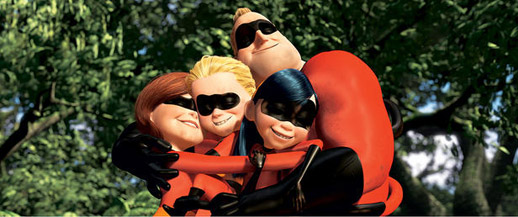|
|
A-List: PixarBy Josh SpiegelJune 17, 2010
Finding Nemo In many ways, the cheerfully prickly nature of Remy the rat can be seen in previous Pixar classic as Toy Story, but it’s in the 2003 underwater adventure Finding Nemo that we’re presented with a lead character who could so easily become the most obnoxious fish in the ocean. Marlin the clownfish, as voiced by comedian Albert Brooks, is a sad sack from the very beginning, and for good reason. In the film’s opening scene, Marlin’s wife and all but one of his babies are murdered by a hungry barracuda. From that point on, Marlin becomes fiercely overprotective of his son, Nemo, to his and his son’s detriment. Nemo tries to show his dad that he’s a grown fish, but ends up caught in a diver’s net, which leads Marlin on a desperate journey to save his son from the human world. Of course, since it’s a Pixar movie, you and I both know how the movie is going to end. Much as the ship always sinks at the end of Titanic, Marlin finds Nemo at the end of the movie. What makes Finding Nemo such a great film isn’t just the father-son relationship, always a bit frayed but still filled with love. It’s the characterization of Marlin, who’s a good person, but so damaged from his past that he’s not able to loosen up; and then there’s Dory, the forgetful fish who ends up helping Marlin find his son, but in the most roundabout and least helpful way possible. As voiced by Ellen DeGeneres (who should probably thank Pixar once a week for rejuvenating her career, along with an HBO special around the same time), Dory is at once charming and maddening. Marlin and Dory are both frustrating yet charismatic leads, and it’s their friendship that makes Finding Nemo so unique and special.
|

|
|
|

|
Monday, May 6, 2024
© 2024 Box Office Prophets, a division of One Of Us, Inc.


